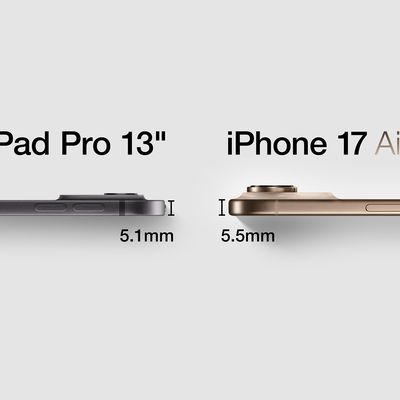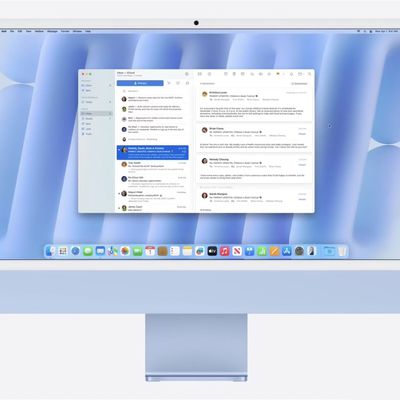Apple Ceases Development of 'AirPort' Wireless Routers as Engineers Reassigned to Other Products
Apple has dissolved its division which develops wireless routers and is now sending engineers who worked on the AirPort lineup into other product teams, including one currently working on Apple TV. The news comes from a report by Bloomberg, who said Apple has been slowly shutting down the division over the past year and made the decision "to try to sharpen the company’s focus on consumer products that generate the bulk of its revenue."

Currently, Apple sells three wireless routers, including the AirPort Express ($99), AirPort Extreme ($199), and AirPort Time Capsule ($299), but none of the devices have seen a refresh since 2013. A temporary stock shortage earlier in the year gave hope that a refresh of the AirPort Extreme and Time Capsule was coming during WWDC, but Apple never mentioned the products during its keynote. The trio of wireless routers still remain available for purchase for the time being.
Exiting the router business could make Apple’s product ecosystem less sticky. Some features of the AirPort routers, including wireless music playback, require an Apple device like an iPhone or Mac computer. If the company no longer sells wireless routers, some may have a reason to use other phones and PCs.
The central reason for abandoning the AirPort line appears to focus mainly on its small revenue gains in comparison to the company's more lucrative products, like the iPhone. Apple includes its routers in the "other products" category of its annual financial results, a section which generated $11.1 billion in fiscal 2016, or about 5 percent of the company's total sales.
Popular Stories
iOS 19 is still around six months away from being announced, but a new leak has allegedly revealed a completely redesigned Camera app.
Based on footage it obtained, YouTube channel Front Page Tech shared a video showing what the new Camera app will apparently look like, with the key change being translucent menus for camera controls. Overall, the design of these menus looks similar to...
Apple today adjusted estimated trade-in values for select iPhone, iPad, Mac, and Apple Watch models in the U.S., according to its website.
Some values increased, while others decreased. The changes were not too significant, with most values rising or dropping by $5 to $50.
We have outlined some examples below:
Device
New Value
Old Value
iPhone 15 Pro Max
Up to $630
U ...
Apple on late Saturday removed TikTok from the App Store in the U.S., and it has now explained why it was required to take this action.
Last year, the U.S. passed a law that required Chinese company ByteDance to divest its ownership of TikTok due to potential national security risks, or else the platform would be banned. That law went into effect today, and companies like Apple and Google...
Apple provided the third beta of iOS 18.3 to developers today, and while the betas have so far been light on new features, the third beta makes some major changes to Notification Summaries and also tweaks a few other features.
Notification Summary Changes
Apple made multiple changes to Notification Summaries in response to complaints about inaccurate summaries of news headlines.
For...
iOS 19 will not drop support for any iPhone models, according to French website iPhoneSoft.fr.
The report cited a source who said iOS 19 will be compatible with any iPhone that can run iOS 18, which would mean the following models:
iPhone 16
iPhone 16 Plus
iPhone 16 Pro
iPhone 16 Pro Max
iPhone 15
iPhone 15 Plus
iPhone 15 Pro
iPhone 15 Pro Max
iPhone 14
iPhon...
For the last several months, we've been hearing rumors about a redesigned version of the iPhone 17 that Apple might call the iPhone 17 "Air," or something along those lines. It's going to replace the iPhone 17 Plus as Apple's fourth iPhone option, and it will be offered alongside the iPhone 17, iPhone 17 Pro, and iPhone 17 Pro Max.
We know the iPhone 17 Air is going to be super slim, but...
In September, Apple said that it would be launching Powerbeats Pro 2 in 2025, and it appears the wireless earbuds are coming very soon.
Powerbeats Pro 2 images found in iOS 18 code
In his Power On newsletter today, Bloomberg's Mark Gurman said the Powerbeats Pro 2 are "due imminently." In addition to Apple filing the Powerbeats Pro 2 in regulatory databases last month, Gurman said Apple is...
Apple plans to expand the iPhone's redesigned Mail app to the Mac starting with macOS 15.4, according to Bloomberg's Mark Gurman.
The first macOS 15.4 beta should be made available in the coming weeks, and Apple has previously suggested that the iOS 18.4, iPadOS 18.4, and macOS 15.4 series of software updates will be released to the public in April.
The revamped Mail app debuted on all...























